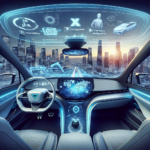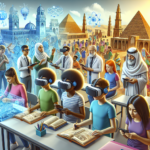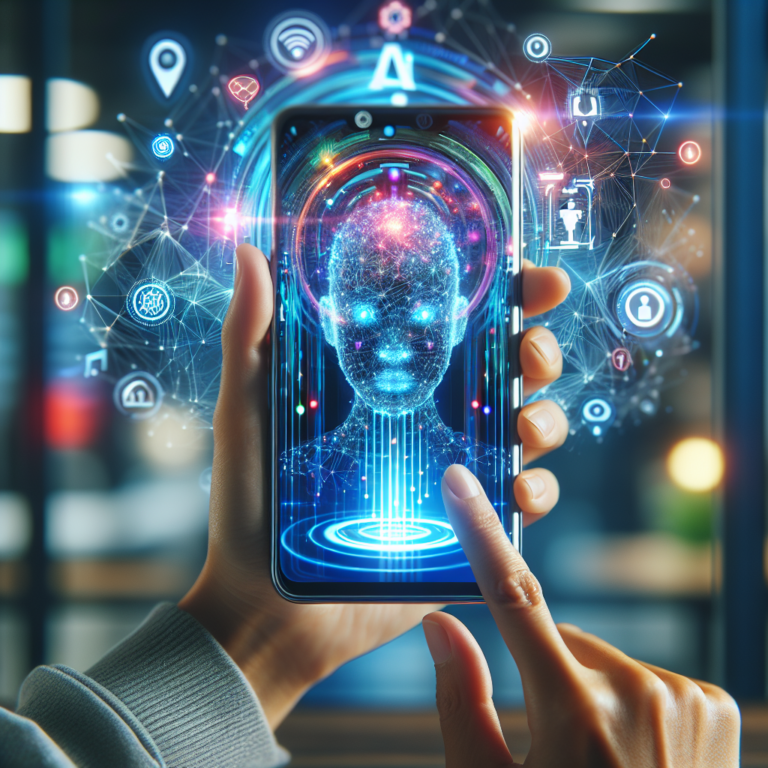Imagine a Future Where AI-Powered Personal Assistants Anticipate Your Every Need in XR Environments!
The Revolution of AI in Extended Reality
The convergence of Artificial Intelligence (AI) and Extended Reality (XR) is transforming how we interact with digital environments. Imagine walking into a virtual meeting room or exploring a vast digital landscape where your personal assistant not only responds to your commands but predicts your needs before you even voice them. 🌐✨
This level of sophistication could redefine our daily activities, work environments, and leisure pursuits by providing seamless interactions and automated solutions tailored to individual preferences. In this blog post, we will explore the myriad possibilities and implications of AI-driven personal assistants in XR environments that anticipate user needs with uncanny precision.
Understanding AI-Driven Personal Assistants in XR
AI-driven personal assistants are software tools designed to assist users by performing tasks, providing information, and managing activities. When integrated into XR environments—such as virtual reality (VR) and augmented reality (AR)—their capabilities can significantly enhance user experience.
So, what exactly are XR environments?
XR environments are digital spaces that blend the real and virtual worlds, allowing users to immerse themselves in interactive experiences. With powerful AI backing these personal assistants, the potential for innovation is limitless. Let’s delve deeper into how these intelligent companions can empower us!
The Power of Anticipation: How Does It Work?
At the heart of an AI personal assistant’s ability to anticipate user needs lies machine learning and data analysis. Here’s how it functions:
- User Behavior Analysis: By analyzing historical user data, these assistants identify patterns in your actions, preferences, and routines.
- Context Awareness: They can perceive the current context, whether you are in a work meeting, attending a virtual social gathering, or simply enjoying leisure time.
- Predictive Models: AI employs predictive algorithms to enhance accuracy in foreseeing your requests based on current interactions or previous behaviors.
This combination of techniques allows personal assistants to formulate intelligent responses and suggest actions that enhance the overall experience.
Benefits of AI-Driven Personal Assistants in XR Environments
Envision a world where your personal assistant is not just reactive but proactive! Here are some of the exciting benefits it could present:
1. Enhanced Productivity
Imagine entering your virtual office where your AI assistant already has a summary of the day’s agenda waiting for you. 🗂️ You wouldn’t need to ask for reminders, as it would gently prompt you about important tasks or upcoming meetings. By managing your schedule and helping with time allocation, productivity could soar.
2. Streamlined Communication
In collaborative XR environments, AI assistants could facilitate communication by summarizing conversations, capturing key points, and even drafting follow-up messages. 💬 This advantage means you can focus on idea generation rather than administrative tasks.
3. Personalized Recommendations
Just like a concierge at a luxury hotel, AI assistants can offer tailored suggestions based on your preferences. Whether it’s recommending the perfect virtual venue for a business meeting or suggesting an AR gaming experience based on your interests, personalization takes user engagement to the next level. 🎮
4. Reduced Cognitive Load
By anticipating user needs, AI can minimize the cognitive burden we face when juggling numerous tasks. This reduction in mental effort allows us to be more creative and focused on what truly matters—innovation and meaningful interaction. 🌈
Pioneering Examples: Companies Leading the Charge
As we glance into the future, several companies are currently pioneering AI-driven personal assistants in XR:
1. Meta (formerly Facebook)
Meta is working diligently to enhance user experiences within its Horizon Workrooms, where AI assistants could streamline meetings while also understanding users’ emotional states. Imagine an assistant that senses frustration during a presentation and offers to summarize key points or suggest breaks!
2. Google
Google is developing immersive experiences in AR through Google Lens and other tools. Their personal assistant is evolving to provide contextual information while anticipating user queries, guiding users seamlessly through experiences.
3. Microsoft
In their Mesh platform, AI-driven personal assistants can aid collaboration by analyzing group dynamics and suggesting ways to enhance interaction in virtual meetings—essentially acting as the glue that holds virtual teams together.
Challenges and Considerations
Though the potential is vast, challenges exist in implementing such advanced AI within XR environments. Some considerations include:
- Privacy Concerns: As these assistants gather and analyze data, ensuring users’ privacy remains a top priority. Transparency in data handling will be crucial.
- Technological Limits: Current AI technology can sometimes struggle with nuance or complexity—it may not always accurately predict user needs.
- User Acceptance: There may be resistance to AI that’s perceived as intrusive or too invasive. Balancing usefulness with user comfort will be key.
Looking Ahead: The Future of AI Personal Assistants in XR
As we stand on the precipice of this technological evolution, AI-driven personal assistants are set to revolutionize our interactions in XR environments. With the integration of predictive capabilities, user-centered design, and ongoing advancements in AI technology, these tools could become indispensable companions in our daily lives.
Imagine a world where your assistant not only fades into the background but also enhances every experience—making communication seamless, tasks effortless, and personalization profound. The future is bright, and it anticipates not just our needs but also our aspirations! ✨




0 Comments